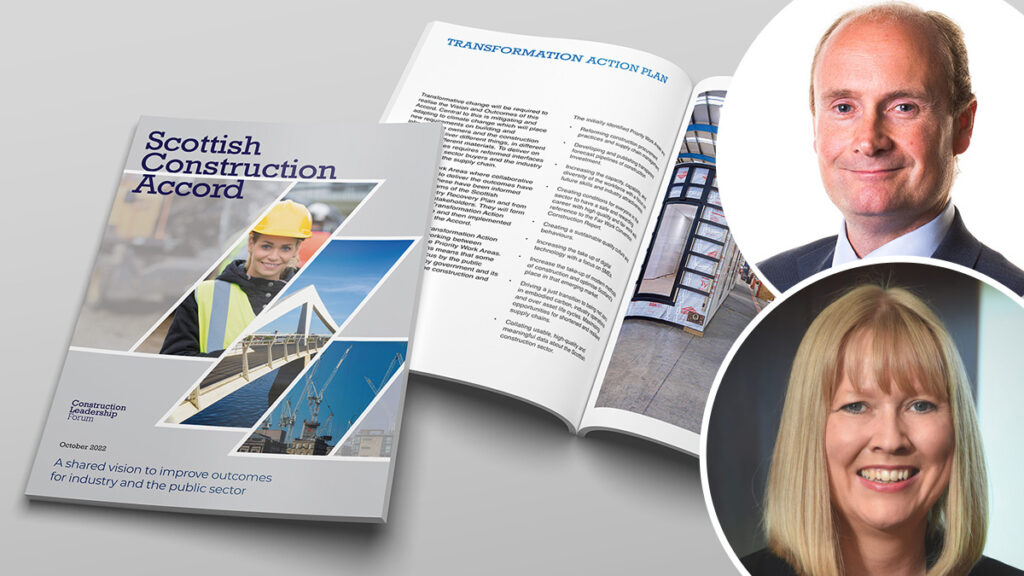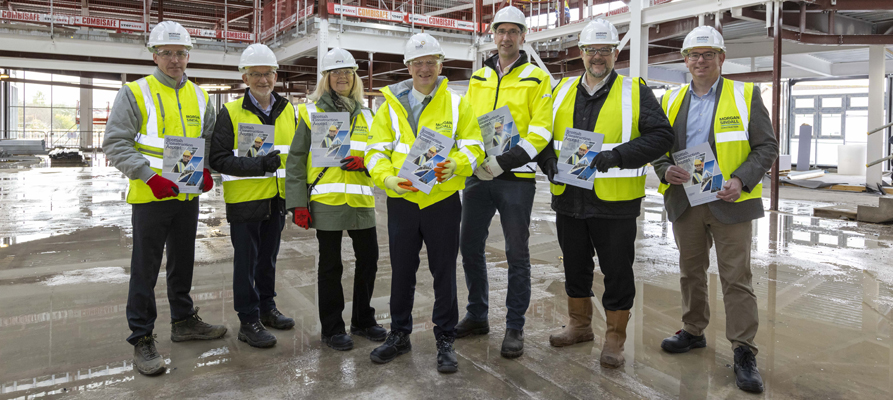
The CICV has welcomed the launch of the new Scottish Construction Accord – but has also urged all elements of the construction industry to embrace it and work together to make it effective.
Launched last week by Scottish Government Minister Ivan McKee, the new initiative is a collaboration between the industry and the public sector designed to create thriving businesses, enhance working conditions, improve delivery and transition to net zero.
As the first of its kind in the UK, the CICV said the Accord was “a significant step forward” – but to make it work, adherents would have to exhibit the same spirit of collaboration, cooperation and commitment that helped steer the sector through the coronavirus pandemic.
Alan Wilson, Managing Director of SELECT and chair of the CICV, said: “A lot of work has gone into this plan, including significant input from the industry itself, and this is the first really concrete sign of a serious inclination to change our ways of working for the better.
“Importantly, the Accord acknowledges that there are real and longstanding issues which urgently need to be addressed and, equally importantly, it also recognises that time is running out if we are to achieve net zero targets
“However, there have been a number of false starts before, so we must all embrace this opportunity in a positive manner and demonstrate willingness to square up to the challenges that we face collectively as an industry.”
Fiona Hodgson, Chief Executive of the Scottish and Northern Ireland Plumbing Employers’ Federation (SNIPEF) and vice-chair of the CICV, said: “The Accord is a significant step forward and is an opportunity to make real, practical changes that will benefit everyone who works in the construction sector.
“The past two years have proved that the three Cs – collaboration, cooperation and commitment – are the key to any success, so we MUST work together if we are to achieve meaningful change through its recommendations.”
The Accord sets out collaborative working arrangements to develop and deliver a transformation plan for the sector, setting the industry on a pathway to net zero and focusing on building the capability and diversity of the workforce, reforming procurement practices and increasing the use of digital technology and modern methods of construction.
At the launch, Mr McKee, the Minister for Business, Trade, Tourism and Enterprise, and chair of the Construction Leadership Forum (CLF), called on industry stakeholders with ideas and capacity to participate in working groups within the Accord.
He said: “The Accord heralds a new shared commitment from industry and the public sector to work together to transform the construction sector, for the good of the industry, the economy and the country.”

Vaughan Hart, Managing Director of the Scottish Building Federation and chair of the CICV Employment sub-group, said: “It is extremely heartening to see the issues the industry has been talking about for years being taken seriously at the highest levels of Scottish and local government.
“We look forward to working with all parties involved to make a success of this Accord and I would urge my fellow CICV members and the wider industry to explore the opportunity of joining the working groups and helping from within.”
Gordon Nelson, Scotland Director of the Federation of Master Builders, agreed, adding: “The Accord has the potential to help create entrepreneurial people, establish new market opportunities, support productive businesses and regions, build a skilled workforce and deliver a fairer and more equal society.
“But like any construction project, all elements need to be strong and consistent, working in harmony and showing equal levels of commitment to ensure that we build a longstanding legacy for the generations who come after us.”
Len Bunton, the respectedconstruction consultantwho recently received a Lifetime Achievement Award from SELECT, said he welcomed the Accord but would like to see it go even further and address issues which he has been campaigning to improve for decades.
Hesaid: “If the Accord is to work, there must be buy-in from everyone in the industry. It is the only way to tackle issues such as late and withheld payments that continue to blight the sector.
“I welcome its recommendations but would like to go even further, getting rid of onerous amendments to building contracts, cutting out the ‘dumping’ risk on contractors and increasing professional fees so that designers can fully design buildings at tender stage.
“I’d also like to see prompter payments, an improvement in cashflow and quality, the threshold on project bank accounts cut to £500,000 and universal adoption of the Conflict Avoidance Process. It remains to be seen if all this will happen but at least we have taken the first step. It is now up to the industry to demonstrate if it really does want to change.”
